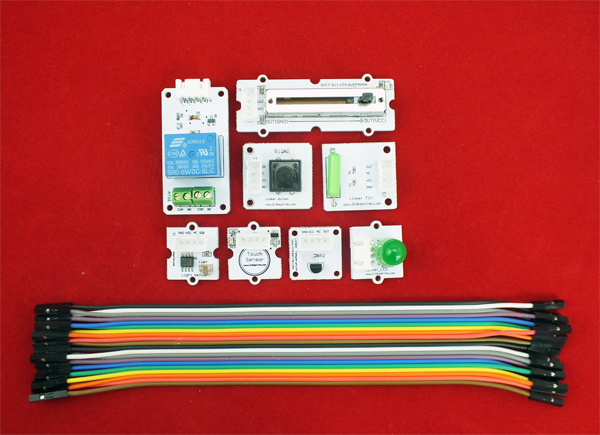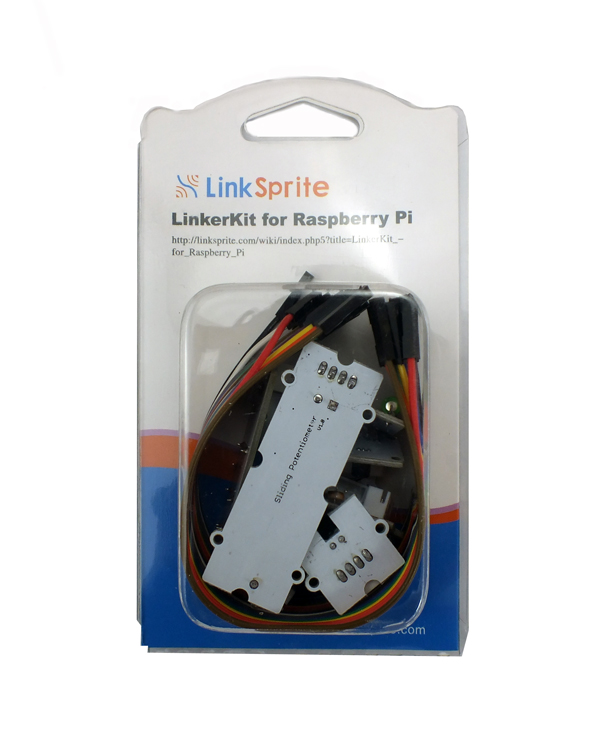Difference between revisions of "LinkerKit for Raspberry Pi"
(→Tutorial) |
|||
| Line 48: | Line 48: | ||
Python code: | Python code: | ||
| + | |||
| + | |||
| + | <syntaxhighlight lang="c"> | ||
import RPi.GPIO as GPIO | import RPi.GPIO as GPIO | ||
| Line 65: | Line 68: | ||
else : | else : | ||
GPIO.output(led_pin,False) | GPIO.output(led_pin,False) | ||
| + | <syntaxhighlight lang="c"> | ||
Revision as of 15:40, 31 July 2013
This pack includes the following components:
- Button Module [LINKER_BUTTON][118101002]
- 5mm Green LED Module [LINKER_5MMGREEN][118101001]
- LDR Module [LINKER_LDR][118101003]
- Thermal Module [LINKER_TEMP][118101005]
- Linear/Slide Potentiometer Module [LINKER_LINEPOTENT][118101006]
- Tilt Module [LINKER_TLT][118101004]
- Touch Sensor Module [LINKER_TOUSEN][118101007]
- Relay Module [LINKER_RELAY][118101008]
- Female to female jumper wires
Tutorial
In this tutorial, we are going to explain how to use Python to do the experiments:
Environment Setup
Now we will install python-pip (pip is a package used to install and manage python software package, and it is used replace esay_install):
sudo apt-get install python-imaging python-imaging-tk python-pip python-dev git
Next, we will install spidev using pip:
sudo pip install spidev
Then we will install WiringPi (the driver for IOs on Raspberry pi, that can be used in C, shell script or Python, etc):
sudo pip install wiringpi
Linker Button
Connect linker_led to pin 27 of RPI, connect linker_button to pin 23 of RPI
Python code:
<syntaxhighlight lang="c">
import RPi.GPIO as GPIO
led_pin = 27 button_pin = 23
GPIO.setmode( GPIO.BCM ) GPIO.setup( led_pin,GPIO.OUT ) GPIO.setup( button_pin, GPIO.IN, pull_up_down=GPIO.PUD_UP)
print ("\nlinker_led pin 27 , linker_button pin 23\n")
while True: if GPIO.input(button_pin): GPIO.output(led_pin,True) else : GPIO.output(led_pin,False) <syntaxhighlight lang="c">

